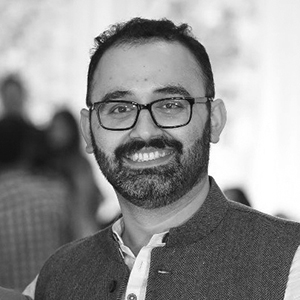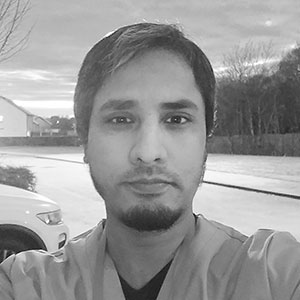The full effects of a recent policy change relating to training access for international doctors remain unclear. Catherine Reilly reports
Since March, the Department of Enterprise, Trade and Employment (DETE) has issued 929 stamp 4 support letters to international doctors under arrangements that have reduced the qualifying period for stamp 4 from five to two years. Stamp 4 is an immigration permission allowing non-EEA nationals to work in Ireland without an employment permit and it provides their spouses with full access to the labour market.
Notably, a policy change announced by the Department of Health in September 2021 has meant that all stamp 4 holders should be considered as equivalent to EU/EEA nationals during the specialist medical training application process. The Department described the measure as a “significant policy change, which will provide greater career opportunities for non-EU/EEA doctors who contributed significantly to our health service”.
“Up to now, EU/EEA community preference was applied by the postgraduate medical training bodies at the request of the HSE and Department of Health as part of the national policy of self-sufficiency.”
The ‘self-sufficiency’ policy is still applied and means that EU/EEA nationals (or those deemed equivalent) are selected for training places before non-EU/EEA nationals, irrespective of merit.
Ostensibly, the recent policy adaptions are good news for non-EEA doctors, who face lengthy waits for decisions on their citizenship applications. But overall training slots are limited and it is likely to be 2023 before the impact of these changes becomes clearer.
Data
Currently, the raw data indicates that non-EU doctors are facing the biggest challenges in gaining training positions. For example, the success rate for EU applicants applying for core surgical training (CST) in 2022/23 was 39.5 per cent (167 applicants; 66 appointed), compared to a success rate of 11 per cent for non-EU nationals (109 applicants; 12 appointed). In addition, there were two stamp 4 holders appointed from 10 applicants.
In 2021/22, the success rate for EU candidates was 45 per cent (155 applicants; 70 appointed) and 11 per cent for non-EU candidates (93 applicants; 10 appointed). There were no stamp 4 holders appointed, but two applied and were interviewed (only a limited category of stamp 4 holders – EUFam – were deemed equivalent to EU nationals at the time).
Statistics for entry to core emergency medicine training in 2021/22 sharply demonstrate the difficulties for non-EU doctors who have sought training places. In that year, 72 of the 110 total applicants for core training were non-EU doctors: All were interviewed, but only seven were included in the total of 26 doctors appointed (as well as four stamp 4 EUFam holders). There were 38 EU applicants and 15 of these doctors were appointed. In the most recent intake (2022/23), there were 57 non-EU applicants and six were appointed; and 42 EU applicants and 22 appointed.
GP training application statistics indicate that expansion of stamp 4 eligibility has made an impact. In 2022, some 32 of the 258 training places were taken up by stamp 4 holders. In the previous intake, only four stamp 4 holders (EUFam) were appointed. That year, a total of 49 non-EU doctors were appointed (including the four EUFam holders) and 187 EU nationals. This year, 72 non-EU doctors were appointed (including the stamp 4 holders) and 186 EU nationals.
“They have gone to the UK and been selected in their first attempts… they seem to be perfectly fine for the NHS“
The RCPI released partial information on training enrolments in 2022, when 583 doctors entered basic and higher specialist training programmes. For basic specialist training (BST), the College reported an increase of 1 per cent in non-EU nationals.
General internal medicine offered places to 14 stamp 4 holders, as well as to 53 non-EU doctors who did not hold stamp 4 (the number of total offers was not published). In the Institute of Obstetricians and Gynaecologists, five of the 24 trainees offered places were from non-EU countries and none held stamp 4.
In the Faculty of Paediatrics, 14 of 48 doctors offered places were from non-EU countries and none held stamp 4. In the Faculty of Pathology, one of the 10 doctors offered a place was from a non-EU country and held stamp 4.
‘Heavily reliant’
The prevailing reality for many international doctors was plainly set out in the recently published Medical Council workforce intelligence report for 2021.
The report outlined that the majority of NCHDs had trained overseas and had not been able to access specialist training in Ireland. The health services were “heavily reliant” on posts filled by international doctors not in training, who reported being “over-worked, undervalued, experiencing discrimination and unable to access specialist training”. The training and working conditions for international medical graduates posed “serious implications” for patient safety, according to the report.
There is little sign of this dependency abating. The Council’s report noted that the number of new doctors who registered in 2021 was 2,605, with 1,717 being international graduates and 888 Irish graduates. Additionally, some 30 per cent of doctors who retained registration in 2021 were non-EU nationals who graduated outside of Ireland.
The Medical Council supported the decision to recognise international doctors with stamp 4 as EU equivalent. However, in correspondence with the Department of Health, its CEO raised queries about the broader context. In July 2021, responding to a consultation paper from the Department on EU/EEA community preference, Council CEO Mr Leo Kearns stated: “The paper cites increases to postgraduate training positions to mitigate the risks of policy changes to self-sufficiency. While this seems a sound approach at first glance, there is no attempt to demonstrate what might be the allocation of positions among programmes? Would this coincide with employment opportunities in these specialities in Ireland? Although more training posts would be a significant boon, it needs to be linked with future consultant posts, changing models of care delivery, and population healthcare needs.
“There is a natural constraint on posts which are suitable for higher specialist training. Posts identified for training necessarily require the appropriate consultant posts, consultant to trainee ratios to the training programme and the applicable training environment. The lack of availability of suitable training posts will be an impediment to expanding training posts. In the options offered, the results of the potential impact of option 4 appear small. This is calculated based on applicants last year, and if rules were to change, there would be a strong expectation this would encourage more applicants from non-EEA qualified doctors….”
In the correspondence, obtained from the Department following a Freedom of Information request, Mr Kearns also stated: “Based on work within the Council, there is a sense the current policy is not only unfair, but one which does not reflect the working environment in Ireland. The Council’s Annual Returns process reveals 92 per cent of opportunities for specialist training go to Irish trainees.” Mr Kearns included an excerpt from a postgraduate monitoring assessor team, which alluded to data showing the dependency on international doctors to deliver medical care, while their training and progression opportunities appeared “to be in very short supply”.
He noted that the Department paper was “underpinned by seeking to protect a principle of self-sufficiency of a protected pathway for Irish CAO graduates; the success to date is in question. This is demonstrated by the number of graduates, who on completion of their internship in Ireland, seek from the Council their Certificate of Experience to take up posts in other jurisdictions; the numbers range from 230 to 300 per year over the last number of years, out of the near 750 internships which are completed annually.”
According to Mr Kearns: “There must be recognition of the role non-EEA doctors play in the Irish health service and will continue to do so unless a fundamental overall reassessment of the medical workforce is undertaken, essentially a ‘Fottrell 2 Report.’”
Independent oversight
Almost 1,000 stamp 4 support letters have been issued by the DETE since March and these doctors will be positioned on an equal footing to EU/EEA candidates should they apply for training in 2023 – ostensibly, at least.
Dr Naveed Abbas, Chair of the IMO international doctors’ subcommittee, said an independent oversight body is required to ensure fair- ness and transparency in the training selection process.

He said he was aware of international doctors with vast experience who were turned down for training positions and consultant posts in circumstances that the doctors felt were unfair.
In the context of international doctors attaining stamp 4 residency, Dr Abbas said the training intake statistics for 2023 must be carefully scrutinised.
Dr Abbas also drew attention to the need to recognise doctors’ experience and skills attained in non-training posts in terms of access to higher specialist training. He remarked that if the experience of these doctors was under question, then the health system should stop appointing them to registrar posts in university hospitals with equal responsibility to Irish doctors in training. “It is the hypocrisy of how the system works that really gets me,” he said.
He said international doctors are continuing to vote with their feet. In his last post in a regional hospital, Dr Abbas knew of six or seven doctors who left Ireland and went straight into structured specialist training in the UK.
“They are all people who have worked in Ireland for six or seven years and tried about four or five times to get a position in training. They have gone to the UK and been selected in their first attempts… they seem to be perfectly fine for the NHS.”
Dr Liqa Ur Rehman, President of Train Us for Ireland, said there had been a “slight” improvement in training access for international doctors. However, training slots were “very limited”, while doctors without stamp 4 (or citizenship) continued to be on an unequal footing to EU/EEA nationals. Lack of recognition of doctors’ skills and experience in non-training posts remained a “key issue”.
Like many international doctors in Ireland, Dr Rehman, a Senior Registrar in Paediatrics, is not in a formal training post, but shares the same roster and responsibilities as colleagues in training posts, including teaching of junior colleagues.

“Almost 90 per cent leave to the neighbouring countries due to fear of being NCHDs forever. The rest, which is less than 10 per cent, keep on working, making their logbooks in the hope they will be able to step up as a senior registrar or even at locum consultant level, and they do, because of the huge shortage of senior professionals at senior level. It has been many years I have been highlighting this simple issue of getting a BST exemption for those who have enough skills and experience in this country to be exempted… and apply directly for HST. But nobody has taken heed so far to bring this simple amendment in the system.”
The training bodies need to urgently implement measures to recognise the experience of doctors in non-training posts or keep losing them to neighbouring countries, where their credentials are recognised when applying for training, he said.
The postgraduate colleges contacted by this newspaper maintained that their selection processes were thorough and fair.
According to an RCSI spokesperson: “The RCSI processes for the assessment and appointment of trainees to our CST and HST programmes meet all the legal and regulatory requirements. We accept applications from all suitably qualified candidates. We interview and score all suitable applicants irrespective of their citizenship. We are obliged to apply the HSE requirements for the appointment of trainees to our national programmes.”
The RCSI said the selection process and criteria are published and overseen by the Irish surgical postgraduate training committee and RCSI Council. “All applicants are given their scores and ranking and can request feedback on their application following completion of the process. There is an appeals process published. The RCSI has a detailed quality assurance process in both the pre-interview assessments and the interview process itself. Our interview process is modelled on an OSCE type assessment.”
The spokesperson added: “All our interviewers undergo an induction programme, which addresses matters such as unconscious bias prior to interview. Interviews are structured across four different domains with independent marking. The scores allocated are then examined by our psychometricians. The RCSI publishes data on various demographic information covering gender, citizenship, age, and other factors around our intakes into the national programmes – www.rcsi.com/surgery/ training/surgery/cst/overview.”
According to the RCPI, it operates within the regulations determined by the HSE and Department of Health and implements a “robust and independent” recruitment process. “Interview panels are chaired by external independent professionals. Applications are assessed entirely on the merit of their application using standardised and pre-published criteria. All candidates that meet the basic entry requirements for BST are called for interview and, for HST, standardised and quality assured shortlisting criteria are applied. Standard scoring is used for each interview and anyone who meets the appoint-able mark moves to the next stage. With the new changes anyone with Irish or EU citizenship, and anyone who is on a stamp 4 or stamp 5 visa, are considered first. Any remaining places are filled from the remaining pool of non-EU applicants.”
An ICGP spokesperson commented: “The appointment of a National Recruitment Lead with responsibility for oversight of the recruitment process ensures that each stage of the process meets ICGP standards and is conducted fairly.
“Feedback is provided to unsuccessful applicants at each stage of the recruitment process. Detailed information on the recruitment process is published by the ICGP on the website and an information session is held for applicants each year to advise them of the process.
“Attendance at training is mandatory for short-listers and interviewers to participate in the recruitment process. This training includes interviewer calibration exercises, in order to ensure fair and equitable marking. Also introduced in 2022, there is oversight of live marking data during the course of the interviews by the National Recruitment Lead.
“The ICGP reviews the recruitment process annually through the postgraduate training committee, 360-degree feedback is gathered from all involved in the recruitment process – applicants, short-listers, interviewers, and administration.
“The ICGP continues to improve the process year-on-year. Situational judgement tests were piloted in the 2022 process. Applicants took part on a voluntary basis. The pilot will be reviewed with a view to implementing this for the 2023 shortlisting process.”
HSE
The HSE informed the Medical Independent it was currently in consultation with stakeholders to approve the number of training posts required by the health service for 2023/24.
The spokesperson outlined: “There has been a steady increase in recognised postgraduate training posts in line with workforce planning, including a 16 per cent increase in the number of trainees in 2021 vs 2019. Overall, there has been a 42 per cent increase in the number of trainees over the last 10 years. Continued increases are planned through the conversion of suitable non-training posts, to reflect national policy, workforce planning recommendations, and capacity.”
Over 1,000 doctors apply for accelerated stamp 4 residency.
More than 1,000 applications from doctors have been made to the Department of Enterprise, Trade and Employment (DETE) for stamp 4 residency support letters after a new procedure opened in the spring. In total, the DETE has issued 929 stamp 4 support letters under these arrangements.
On 8 March 2022, changes to working arrangements and immigration permissions for non-EEA doctors were announced by the Tánaiste, Minister for Justice, and Minister for Health. The changes aimed to provide most doctors in receipt of a general employment permit with similar rights as provided under the critical skills employment permits scheme. The DETE stated that doctors who had already completed 24 months’ service in Ireland would be entitled to apply for a stamp 4 support letter and estimated that up to 1,800 doctors were in this cohort.
Initially, the DETE accepted applications from doctors during a six-week period from mid-March until the end of April 2022. During this period, it received over 950 applications from doctors working in Ireland for more than two years under a general employment permit and approximately 250 applications were processed per week. Notification was then sent to the Department of Justice, which is responsible for issuing the doctors with their new Irish residence permit card.
According to a DETE spokesperson: “In September 2022, the Department reopened the scheme to accept applications from doctors who would have reached the required two years. This resulted in a further 96 applications being received, the processing of which should commence [shortly].
“To date 43 applications have been rejected, with the main reason being failure to meet the requirement to be working on a general employment permit for two years. It would be open to these doctors to resubmit applications when they have completed the required period of work. A small number of other applications were rejected as they were submitted outside the timeframe.”
Under the reopened scheme, non-EEA doctors already in the State for 21 months or more with a general employment permit may apply. Applications will be accepted until 31 October 2022.













Leave a Reply
You must be logged in to post a comment.